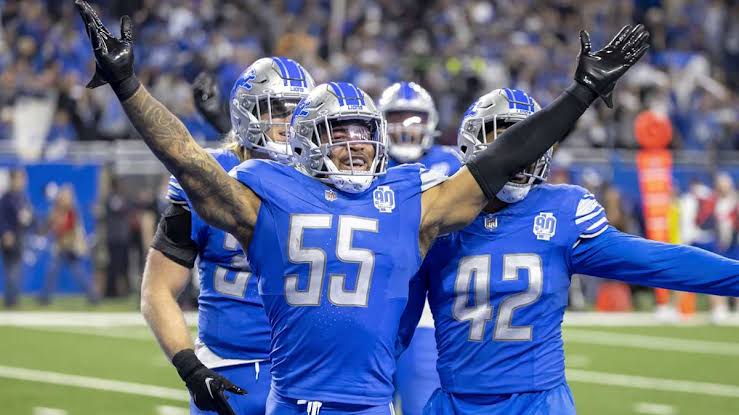Last week, we analyzed the contract details of Detroit Lions’ free-agent signing D.J. Reed. His deal stood out because it was structured differently from most previous Lions contracts. Instead of Reed having a large salary in the final year of his three-year agreement, Detroit allocated that money into an option bonus. This move allows them to spread the cap hit into the year after Reed departs if they decide to exercise the option.
We had previously reviewed Derrick Barnes’ contract, but new details have emerged. Over The Cap has provided an updated breakdown, revealing that Barnes’ deal is structured almost identically to Reed’s. Like Reed, his contract incorporates void years and an option bonus to distribute cap hits over the next four seasons.
Both contracts have their highest cap hits in Year 2, while the unusual dip in Year 3 is due to the substantial 2028 dead cap hit. This results from the Lions’ relatively new approach of utilizing option bonuses in the final contract year.
Why are the Lions prioritizing cap space for 2027 while potentially taking on major cap hits in 2028? One reason is that spreading cap hits across two seasons makes financial management easier. If the signing bonus were included in their salaries, it would create a much larger cap hit in 2027.
Additionally, as long as the salary cap continues to rise annually, future cap hits become less restrictive. A $40 million cap hit in a $200 million salary cap year is 20%, but if the cap increases to $220 million, that same $40 million hit would drop to 18% of the total cap. This provides more flexibility to defer dead cap into the future.
There may also be another factor at play. In 2028, Jared Goff will be 34 and entering the last year of his current contract. If the Lions choose, they could move on from him and start fresh with a new quarterback—possibly one on a rookie deal. Additionally, 2028 marks the final contract year for Amon-Ra St. Brown and Alim McNeill’s major extensions.
The team could cut them to save roughly $22 million each or renegotiate new deals to significantly reduce their cap hits ($41M for St. Brown and $29.2M for McNeill). Of course, if Goff is still performing well, he could also receive an extension.
Another key factor in how teams handle future cap space is the NFL’s television contract. The current deal has an opt-out option after the 2028-29 season, potentially leading to a lucrative new agreement and a significant salary cap increase. Following the last TV deal, the cap jumped by 14%, one of the biggest increases ever—though that was partially due to the previous year’s reduction from COVID-related losses.
That said, the option bonus gives the Lions flexibility to move on from Barnes after two seasons, just as they would if the bonus were structured as a non-guaranteed salary. If Detroit parts ways with Barnes after two years, these would be the projected cap hits:
Regardless, it’s clear the Lions—like every other team—are planning for both short- and long-term financial balance. Each year, Detroit seems to refine its strategies for distributing cap hits, and option bonuses appear to be their latest approach.
